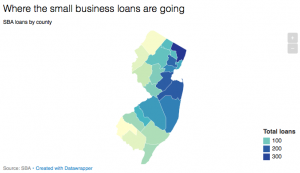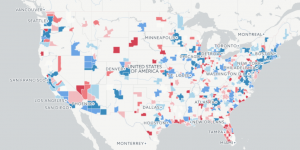House Republicans released their long awaited tax bill Thursday. The proposal is a long way from becoming the law of the land, but the draft contains some red flags for the people who build, sell and own homes—as well as for people who want to buy them.
Three changes are particularly relevant: a reduction in the amount of mortgage interest that can be deducted, a new cap on property tax deductions and limits to the capital gains exemption used by homeowners when they sell.
Real estate professionals have been quick to cry foul, arguing the proposals would eliminate the tax incentive to buy, turning America into a nation of renters and putting pressure on home values. Already the homeownership rate is near an all-time low at 63.7%, they point out. William Brown, president of the National Association of Realtors, calls the bill “nowhere near as good a deal as the one middle-class homeowners get under current law.” Some outside the industry, however, contend that in the long run the only real loser will be the industry itself.
…
While the median price of a house sold today is $245,000, in some expensive markets a $500,000 loan does not come close to paying for most homes. Some fear the lower cap would be particularly detrimental to first time buyers in such markets. Moreover, creating a distinction between current and future homeownership could create a disincentive to move, intensifying an already severe inventory shortage at the entry level. Increases in home values over the long term will also eat away at the value of the deduction if a plan to raise the cap over time is not put in place.
At the same time as the plan cuts back on deductions for individual homeowners, it exempts real estate investors from a new 30% limit on interest deductibility for businesses. “This tax plan would turn America from a nation of property owners into a nation of tenants renting from private equity-backed landlords,” argues Vishal Garg, CEO of Better Mortgage, an online mortgage lender focused on Millennials. “Why should corporate landlords get the deduction if your consumer homebuyer can’t?”
Another change is to the provision that allows homeowners to exclude from their taxable income up to $250,000 in capital gains ($500,000 for married taxpayers) from a sale of their primary residence. Under the plan, to qualify for this break, homeowners must have owned and lived in the home for at least five of the last eight years. Currently the rule is two of the last five. Taxpayer use of the exclusion would also be limited to one sale every five years, rather than one every two. In addition, under the house bill, you begin to lose the gains exemption if adjusted gross income (in a look-back period) exceeded $500,000 if married or $250,000 if single.
Expensive markets would also be hit by the proposal to cap the deduction for property on a home at $10,000. Currently all state and local taxes are deductible in the ordinary tax (although not in the alternative minimum tax, which would be eliminated by the house bill). In the lead up to the bill’s release, local tax treatment was one of the most contentious issues. Originally on the chopping block, property taxes were spared after a revolt from Republican lawmakers from high-tax states like New York, where the effective property tax rate is 1.38% of a property’s value, and New Jersey, where the effective rate is 2.13%.
The compromise, however, did little to quell real estate industry anger or investor jitters. (It is also unclear how many House Republicans from high tax states will continue to oppose the bill because of the $10,000 cap and because state and local income taxes wouldn’t be deductible at all.)


